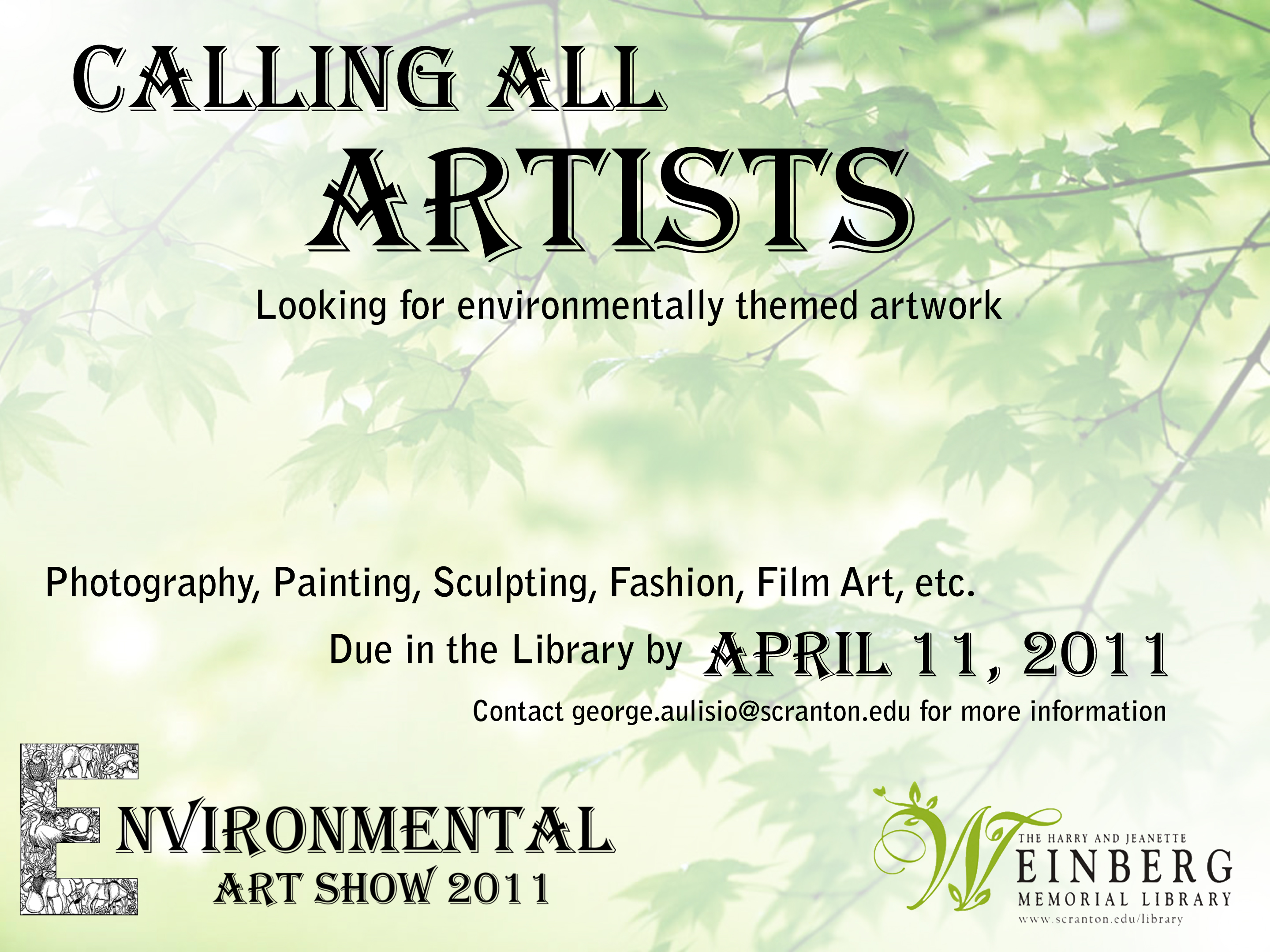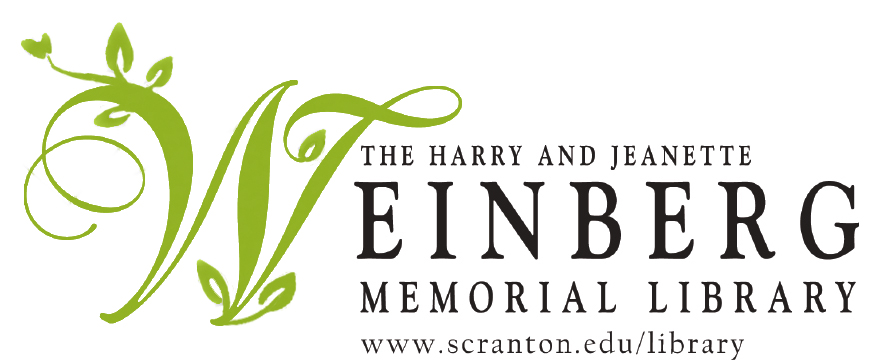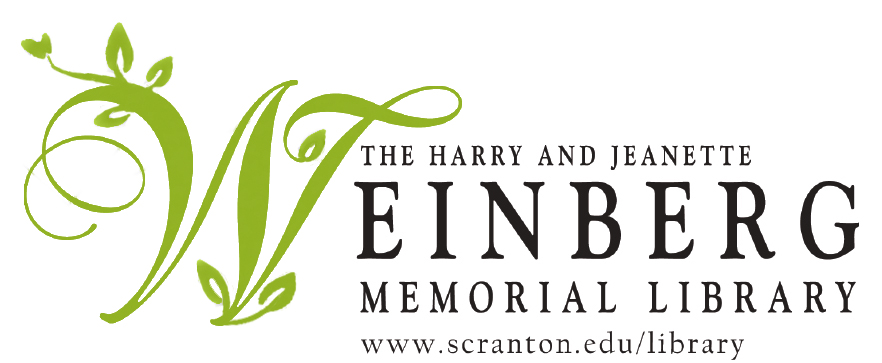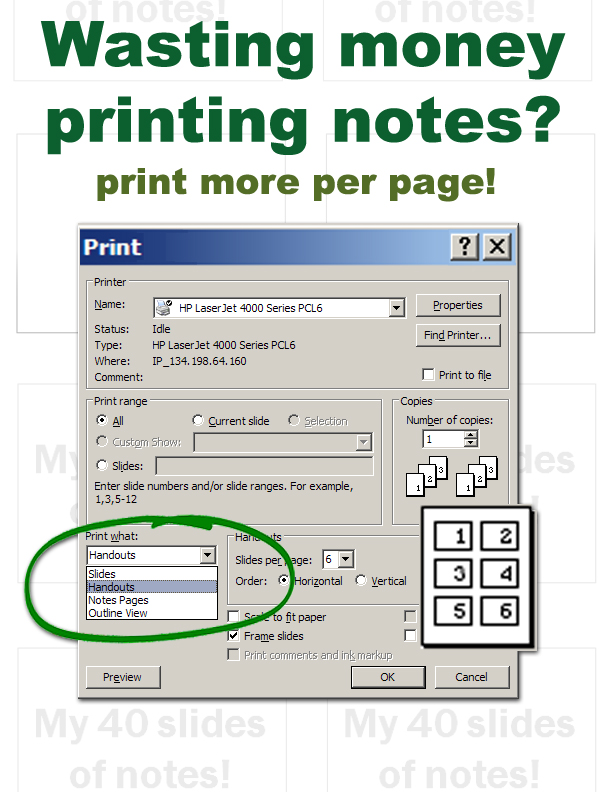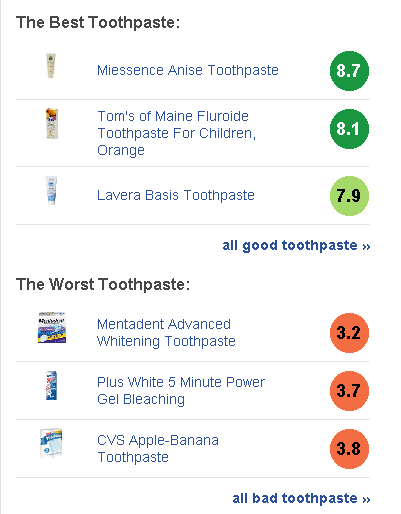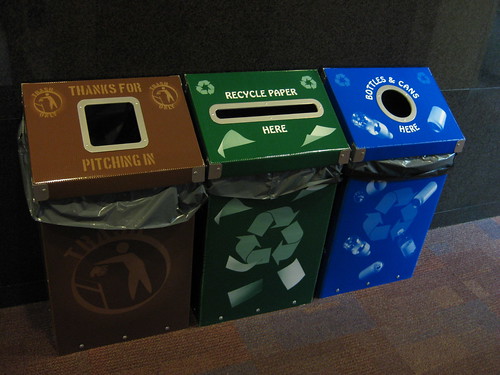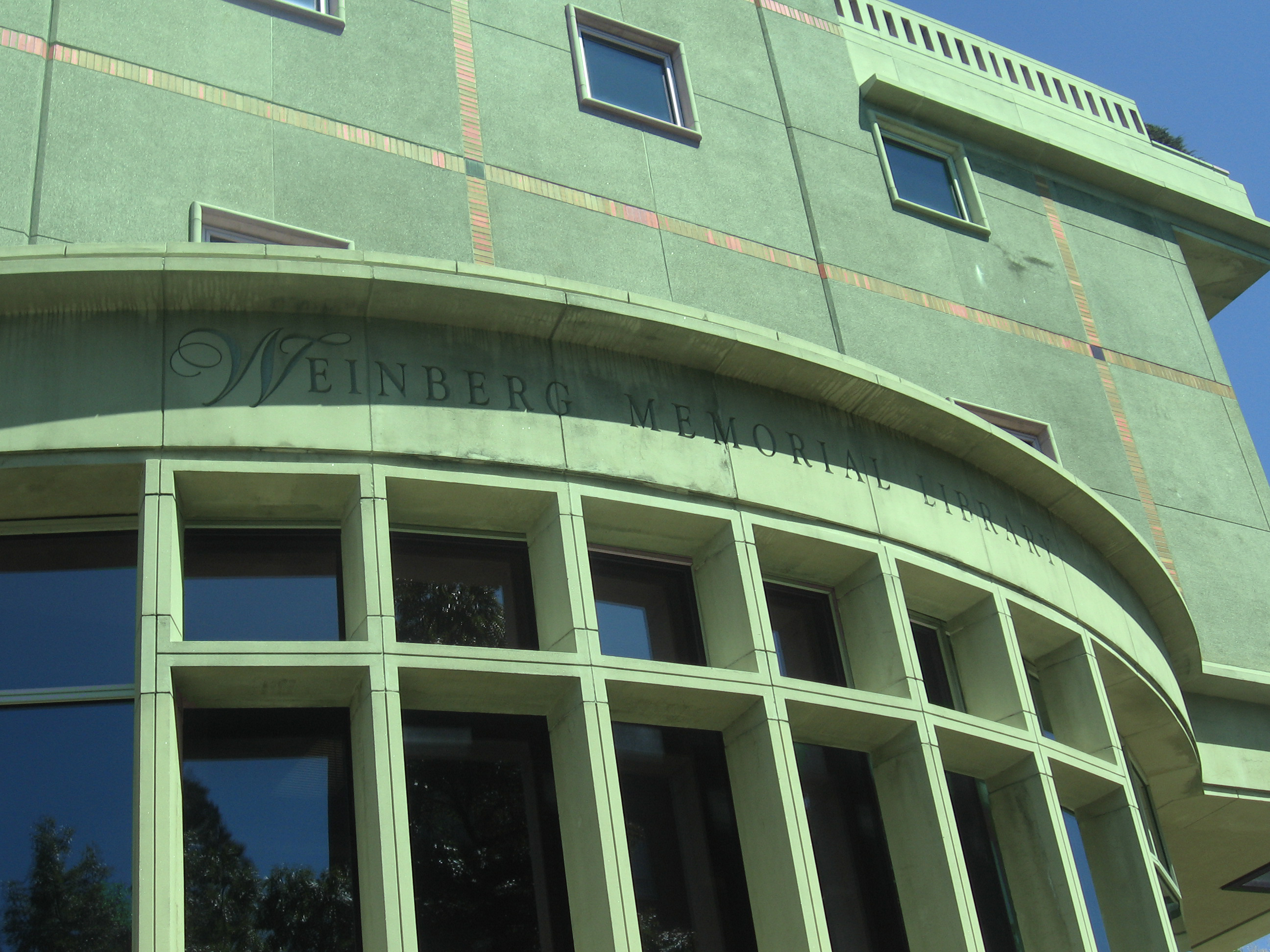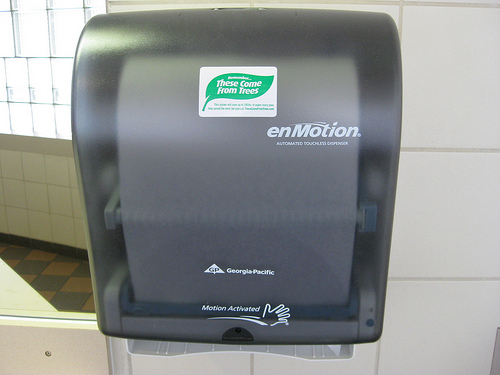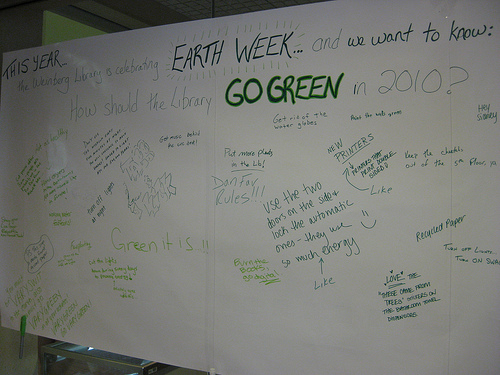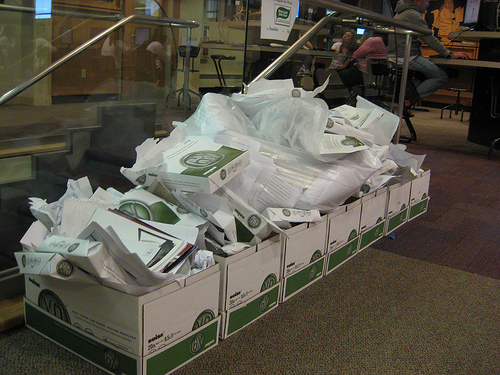This year the library will be hosting its first ever Environmental Art Show. The purpose of the art show is to promote sustainability and to raise awareness about environmental issues. The Library Green Team is asking any interested students, staff, or faculty to submit their environmentally themed art.
All types of environmentally themed art are welcome, this includes photography, painting, sculpting, graphic design, altered images, fashion, film art, and any other areas of creativity. Submissions must be environmentally themed. Examples of environmentally themed art include nature scenes, animals, humanity’s effect on the environment, and creative messages about sustainable issues. Any questions about specific themes or ideas could be directed to george.aulisio@scranton.edu. There is no limit on submissions. However, not all submissions will necessarily be displayed.
Submissions are asked to be ready for display (within reason) This means, for example, that photographs and paintings are to be matted or framed, TVs and additional devices for film art will be provided by the library, any artist who has special display needs should contact George Aulisio. The Environmental Art Show will be held in the Heritage room of the library and will coincide with the University’s celebration of Earth week. All artwork will be returned by the end of the semester.
For any additional questions please contact george.aulisio@scranton.edu.

